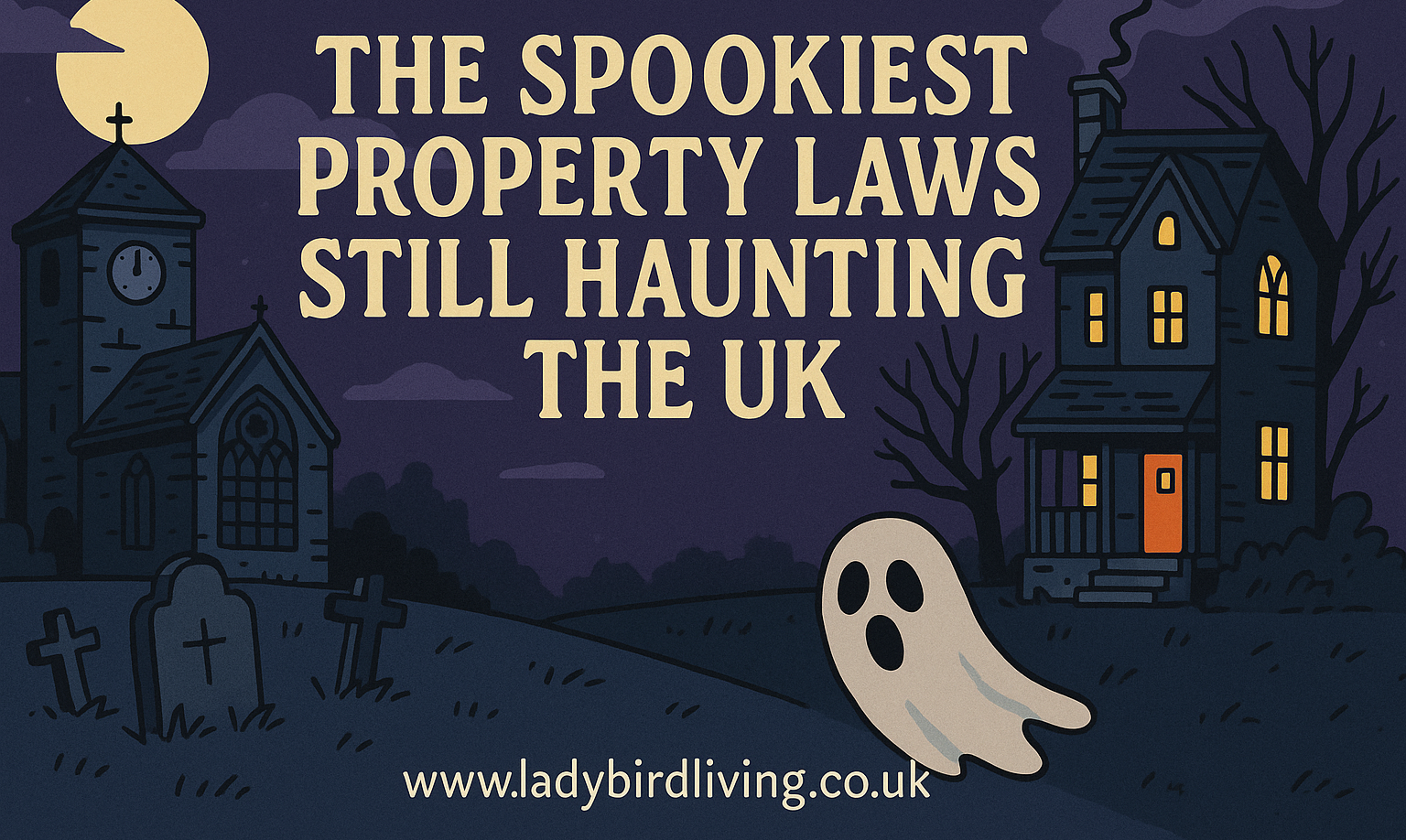
The Spookiest Property Laws Still Haunting the UK
Buying a home is supposed to be exciting — but what if the past refuses to let go? From medieval church bills to phantom landlords, some ancient UK property laws still creep through the corridors of modern real estate.
The Church That Sends You the Bill — Chancel Repair Liability
Imagine moving into your dream cottage, only to receive a chilling letter demanding you pay thousands to fix the church roof down the lane. Sounds like a trick? Sadly, it’s real.
Under a medieval rule called Chancel Repair Liability, some properties in England and Wales can still be required to pay for repairs to the chancel (the area around the altar) of their parish church. The obligation dates back to the 13th century, when monasteries owned the land and it sometimes still attaches to your title today.
A modern couple even found themselves owing nearly £200,000 for church repairs after the courts ruled they were liable.
The Lord of the Manor Never Left — Manorial Rights
Think you own your land outright? Think again. Some “lords of the manor” from medieval England still retain ancient rights over modern homes including the rights to mines, minerals, and even to hold fairs or markets.
These manorial rights were meant to disappear with the feudal system, but many survived. In some places, homeowners have discovered that their deeds are still haunted by these archaic claims.
The Ghost Who Moved In — Squatters’ Rights (Adverse Possession)
There’s nothing scarier than someone — or something — living in your house without you knowing. But under adverse possession, a squatter can, in some cases, legally take ownership of land or property they’ve occupied without permission for long enough.
In older cases, 12 years of occupation could hand them ownership; under newer laws, it’s usually 10 years for registered land (with some hurdles). But still, it’s a haunting idea: a stranger quietly tending your garden, only to one day legally own it.
The Twig and Turf Ceremony — Livery of Seisin
Before deeds and contracts, property transfers were performed through ritual. Under Livery of Seisin, the seller would literally hand over a piece of earth, twig, or stone in front of witnesses to symbolise ownership of land.
It’s long gone now — replaced by signatures and registries — but the imagery remains spine-tingling: two figures on a foggy field, exchanging clumps of soil under the moonlight to seal a deal.
The Invisible Tenants — Overriding Interests
Even in the modern age of the Land Registry, some rights and claims don’t show up on your title deeds. These are called overriding interests, and they might include someone’s right to use part of your land or even live there.
It’s every homeowner’s nightmare — hidden claims that linger unseen until they suddenly appear, demanding recognition.
Final Thoughts — When the Past Won’t Let Go
Property law isn’t just about contracts and conveyancers — it’s full of history and lingering echoes of Britain’s feudal past. This Halloween, as you carve pumpkins and admire your cosy home, remember: beneath your floorboards might lie the footprints of monks, lords, and squatters — each leaving their mark on the law that governs your land today.
Recent Posts






